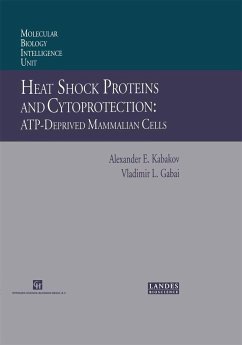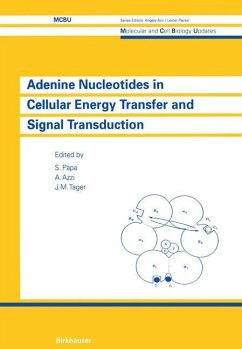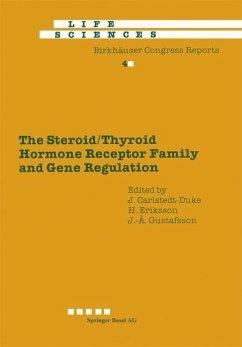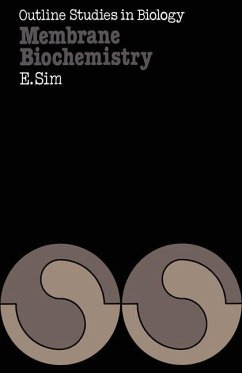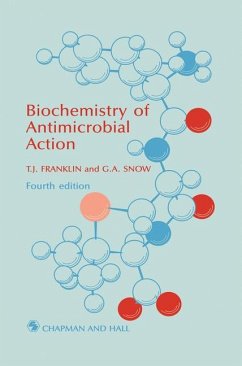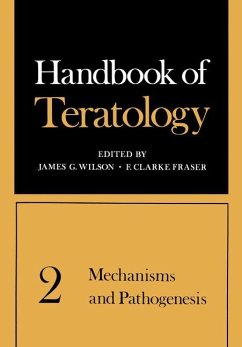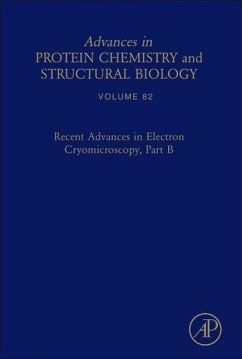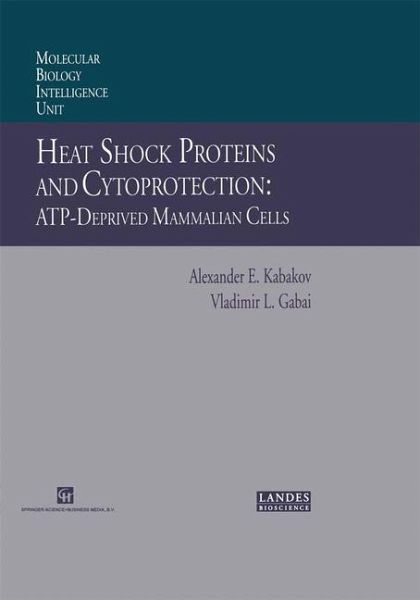
Heat Shock Proteins and Cytoprotection
Atp-Deprived Mammalian Cells
Versandkostenfrei!
Versandfertig in 6-10 Tagen
76,99 €
inkl. MwSt.
Weitere Ausgaben:

PAYBACK Punkte
38 °P sammeln!
1. Heat Shock Proteins and the Regulation of Heat Shock Gene Expression in Eukaryotes.- 1.1. The Family of Stress Proteins and Molecular Chaperones.- 1.2. The Regulation of Heat Shock Gene Expression in Eukaryotes.- Concluding Remarks.- 2. ATP Homeostasis, Ionic Balance and Cell Viability.- 2.1. ATP Homeostasis in Mammalian Cells.- 2.2. Cell Viability and ATP Depletion.- 2.3. Significance of Ionic Imbalance for the Death of ATP-Depleted Cells.- 2.4. Mitochondrial Dysfunction and Damage During Ischemia.- Concluding Remarks.- 3. ¿Proteotoxicity¿ of ATP Depletion: Disruption of the Cytoskeleton...
1. Heat Shock Proteins and the Regulation of Heat Shock Gene Expression in Eukaryotes.- 1.1. The Family of Stress Proteins and Molecular Chaperones.- 1.2. The Regulation of Heat Shock Gene Expression in Eukaryotes.- Concluding Remarks.- 2. ATP Homeostasis, Ionic Balance and Cell Viability.- 2.1. ATP Homeostasis in Mammalian Cells.- 2.2. Cell Viability and ATP Depletion.- 2.3. Significance of Ionic Imbalance for the Death of ATP-Depleted Cells.- 2.4. Mitochondrial Dysfunction and Damage During Ischemia.- Concluding Remarks.- 3. ¿Proteotoxicity¿ of ATP Depletion: Disruption of the Cytoskeleton, Protein Aggregation and Involvement of Molecular Chaperones.- 3.1. The Cytoskeleton Under ATP Deprivation.- 3.2. Protein Aggregation in Energy-Deprived Cells.- 3.3. How Do Heat Shock Proteins Respond to ATP Depletion?.- Concluding Remarks.- 4. ATP Depletion as Inducer of Heat Shock Protein Expression.- 4.1. Anoxia and Mitochondrial Inhibitors Activate HSP Gene Expression.- 4.2. Ischemia-Induced HSP Synthesis in the Heart.- 4.3. Stress Protein Expression in Post-Ischemic Brain.- 4.4. Ischemia-Induced Stress Protein Synthesis in Other Normal Tissues and Tumor Cells.- 4.5. Possible Mechanisms of HSP Accumulation After ATP Depletion.- Concluding Remarks.- 5. Heat Shock Proteins and Cardioresistance to Ischemia.- 5.1. Heat Shock-Induced Cardioresistance to Ischemia/Reperfusion Injury.- 5.2. The Role of Myocardial HSPs in Ischemie Preconditioning.- 5.3. The Cardioresistance Induced by Other Stimuli Can Also Be Associated with HSPs.- 5.4. Evidence for the Involvement of HSP70 in Cardioprotection.- 5.5. Are Other Stress Proteins Cardioprotective?.- Concluding Remarks.- 6. Involvement of Heat Shock Proteins in Protection of Various Normal and Tumor Cells from Ischemic Insult.- 6.1. HSPs and Ischemic Tolerance in the Brain.- 6.2. Ischemic Tolerance in the Kidney.- 6.3. HSPs and Protection from Ischemia of Other Organs and Tissues.- 6.4..- Concluding Remarks.- 7. What Are the Mechanisms of Heat Shock Protein-Mediated Cytoprotection Under ATP Deprivation?.- 7.1. Two Paradigms of Cell Tolerance to ATP Deprivation: Reduced Injury During the Stress and the Improved Post-Stress Recovery.- 7.2. Chaperoning Under ATP Depletion as a Special Function of HSP70.- 7.3. How Other Stress Proteins Might Maintain the Viability of ATP-Deprived Cells.- 7.4. How Do HSPs Protect Cells against Necrosis during ATP Depletion?.- 8. Mechanisms of Heat Shock Protein-Mediated Protection from Ischemia-Induced Apoptosis.- 8.1. HSPs and Triggering of Apoptosis in Ischemic Cells.- 8.2. HSPs and Transduction of the Apoptotic Signal.- 8.3. HSPs and the Execution of Apoptosis.- 9. Conclusions and Perspectives.- 9.1. Adaptation to Energy Starvation on The Molecular Level.- 9.2. Heat Shock Proteins and Ischemia: Significance for Medicine.- Concluding Remarks.





